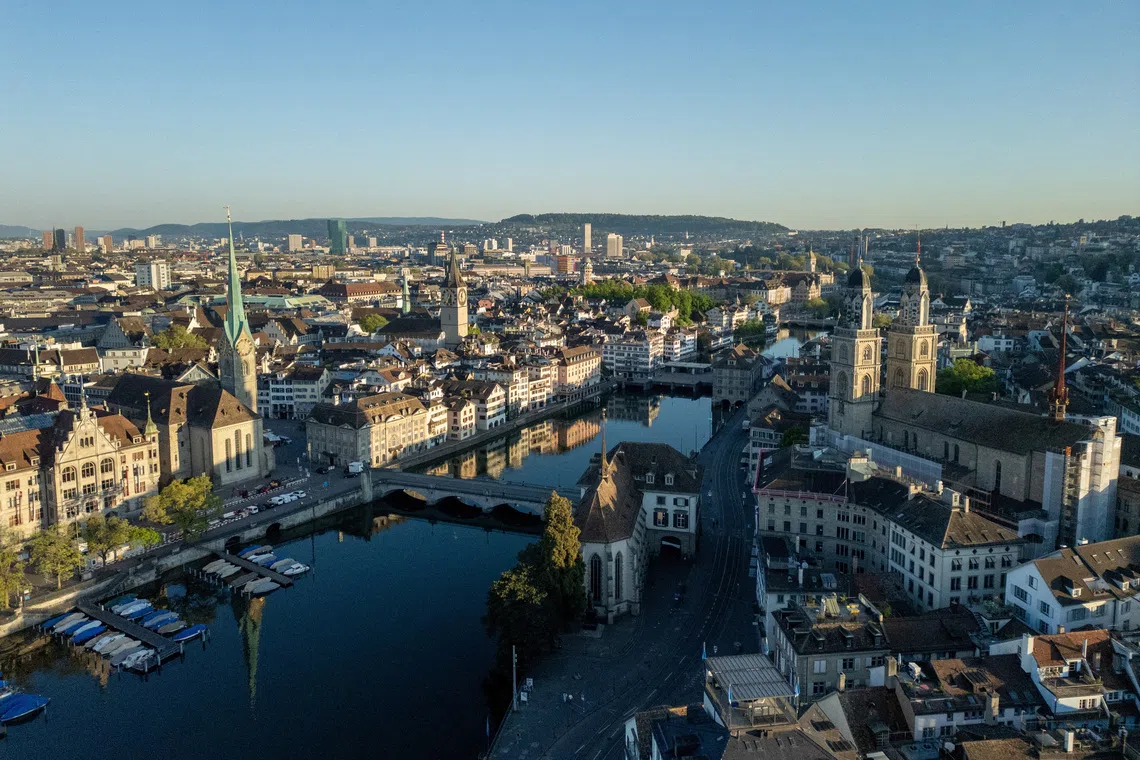Swiss voters likely to reject proposed tax of 50% on super rich: Poll
Sign up now: Get ST's newsletters delivered to your inbox

Two-thirds of respondents opposed the initiative seeking to raise funds to help combat climate change, with only 31 per cent in favour, the poll revealed.
PHOTO: REUTERS
Follow topic:
ZURICH – A Swiss referendum on a proposal to impose a 50 per cent tax on inherited fortunes of 50 million Swiss francs (S$81 million) is likely to be rejected by voters, a poll showed on Oct 15.
Two-thirds of respondents opposed the initiative seeking to raise funds to help combat climate change, with only 31 per cent in favour, the Oct 8-9 survey of 11,178 people in Switzerland by media groups 20 Minuten and Tamedia showed.
The referendum will be held on Nov 30.
Currently around 2,500 taxpayers in Switzerland have assets worth more than 50 million francs, with a total wealth of about 500 billion francs, said Swiss tax authorities.
If enacted, the proposal would theoretically lead to an extra 4 billion francs in tax revenues.
Rich damage environment disproportionately, supporters say
Those revenues should be invested in projects to reduce the impact of climate change, according to the youth section of the leftist Social Democrats (Juso), which launched the initiative.
Juso leader Mirjam Hostetmann argued that the very wealthy are destroying the climate most with their luxury consumption.
“The 10 richest families in Switzerland together cause as many emissions as 90 per cent of the Swiss population,” she said. “It cannot be that the general population bears the costs.”
The proposal has drawn sharp criticism from business leaders and sparked warnings it could trigger an exodus of wealthy people from Switzerland, reducing overall tax revenues. One senior banker likened it to a “nuclear bomb” for the country.
The government has urged voters to reject the initiative.
“The initiative would greatly reduce Switzerland’s attractiveness for wealthy individuals,” Swiss Finance Minister Karin Keller-Sutter said this week. REUTERS

